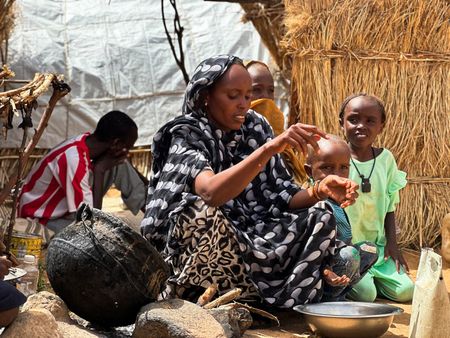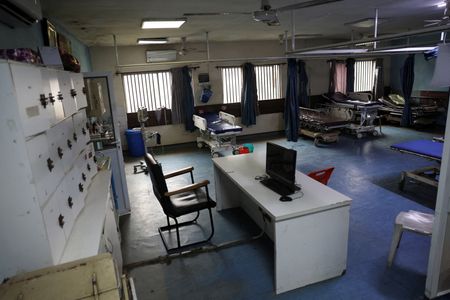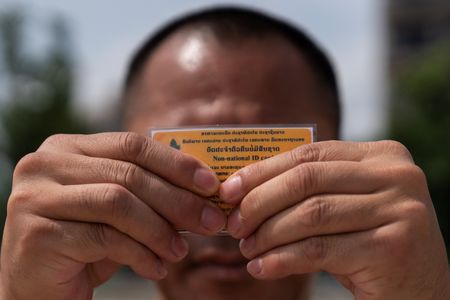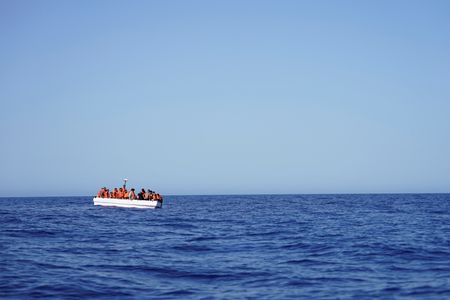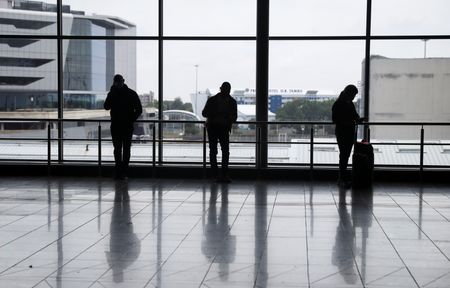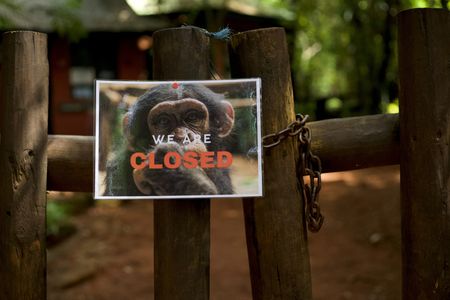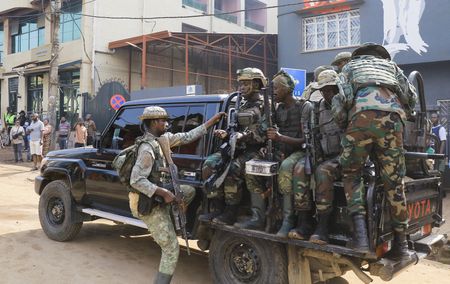(Reuters) -Hundreds of thousands of people under siege in the Sudanese army’s last holdout in the western Darfur region are running out of food and coming under constant artillery and drone barrages, while those who flee risk cholera and violent attacks.
Al-Fashir, the capital of North Darfur state, is the biggest remaining frontline in the region between Sudan’s army and the paramilitary Rapid Support Forces (RSF), under fire at a pivotal point in a civil war now well into its third year.
“The RSF’s artillery and drones are shelling al-Fashir morning and night,” one resident told Reuters. Electricity was completely shut down, bakeries were closed and medical supplies scarce, he added.
“The number of people dying has increased every day and the cemeteries are expanding,” he said.
The war between the Sudanese army and the RSF erupted in April 2023 when the former allies clashed over plans to integrate their forces.
The RSF made quick gains in central Sudan, including the capital Khartoum, but the army pushed them westward this year, leading to an intensification in fighting in al-Fashir.
The city’s fall would give the RSF control over nearly all of Darfur – a vast region bordering Libya, Chad, Central African Republic and South Sudan – and pave the way for what analysts say could be Sudan’s de facto division.
Besieged along with the army and its allies are hundreds of thousands of al-Fashir’s residents and people displaced by previous attacks, many living in camps that monitors say are already in famine.
One doctor, who asked not to be named for her safety, said hunger was an even bigger problem than the shelling.
“The children are malnourished, the adults are malnourished. Even I today haven’t had any breakfast because I can’t find anything,” she said.
The RSF has blocked food supplies and aid convoys trying to reach the city have been attacked, locals said. Prices for the goods traders are able to smuggle in cost more than five times the national average.
Many people have resorted to eating hay or ambaz, a type of animal feed made out of peanut shells, residents told Reuters. One advocacy group said even ambaz was running out.
The RSF, which has its roots in the Janjaweed militias accused of atrocities in Darfur in the early 2000s, did not immediately respond to a request for comment.
RISKS OF FLIGHT
Many residents fleeing the city have sought shelter in Tawila, about 60 km (40 miles) west. Some of those who made it told Reuters they were attacked by groups of RSF fighters along the way.
“We fled to Shagra (village) first before getting to Tawila and they attacked us again,” 19-year-old Enaam Abdallah said.
“If they find your phone, they take it. Money, they take it. A donkey or anything, they’ll take it. They killed people in front of us and kidnapped girls in front of us,” she said.
On Monday, Emergency Lawyers, a human rights group, said at least 14 people fleeing al-Fashir were killed and dozens injured when they were attacked in a village along the route.
Tawila is hosting more than half a million displaced people, most of whom have arrived since April, when the RSF stepped up its assault on al-Fashir and attacked the massive Zamzam displacement camp to the city’s south.
But Tawila offers little aid or shelter, as humanitarian organisations are stretched by foreign aid cuts. People who arrived there told Reuters they receive small amounts of grain, including sorghum and rice, but amounts were varying and insufficient.
Sudan is in the throes of the rainy season, which in combination with poor living conditions and inadequate sanitation has led to an outbreak of cholera.
Since mid-June, aid group Medecins Sans Frontieres has treated 2,500 cases of cholera, a spokesperson told Reuters.
Some 52 people have died from the disease, according to the Coordinating Committee for Displaced People, a Sudanese advocacy group that operates across Darfur.
Vaccines needed to stem the outbreak, if provided, will take time to arrive given the rains.
An assessment by the Norwegian Refugee Council found that only 10% of people in Tawila had reliable access to water, and even fewer had access to latrines. Most families report eating one meal a day or less, the organisation said.
“We don’t have houses to protect us from the rain and we don’t have tarps. We have to wait for the rain to stop for the children to sleep,” mother-of-four Huda Ali said as she sat among roofless shelters made of straw.
She said she tried to make sure her children washed their hands and only ate food that had been properly heated.
The United Nations called for a humanitarian pause to fighting in al-Fashir last month as the rainy season began, but the RSF rejected the call.
Fighting has also raged across Sudan’s Kordofan region, which borders Darfur, as the two sides fight to demarcate clear zones of control amid stalled mediation efforts.
(Reporting by Nafisa Eltahir, Khalid Abdelaziz, and Mohamed Jamal; Editing by Andrew Heavens)

